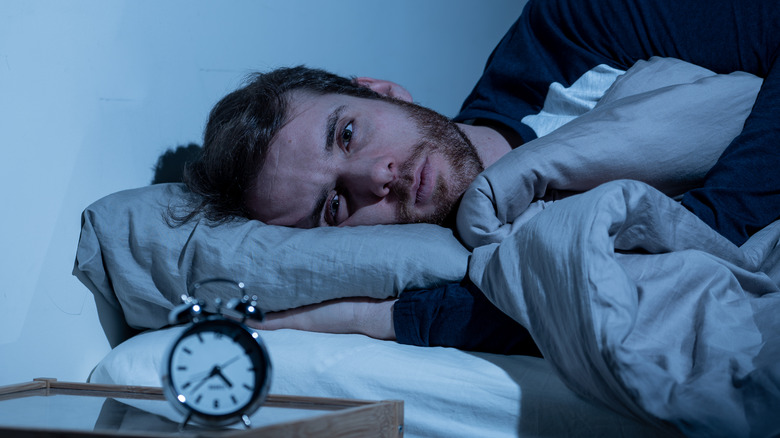It may not feel like it, but a lot is going on while you sleep. In fact, there are several stages of sleep, including non-rapid eye movement (REM) sleep (which ranges from light to deep sleep) and REM sleep. Your body and brain perform numerous functions throughout the stages of sleep, so any interference can leave you feeling wiped out the next day, per Johns Hopkins Medicine. Tossing and turning are among the factors that may reduce sleep quality, notes Healthline.
If it disrupts your sleep, one reason you might move a lot during the night could be related to certain sleep movement disorders. The American Sleep Association explains that periodic limb movement disorder (PLMD) and restless legs syndrome (RLS) are conditions that might interrupt sleep. With these disorders, your legs move involuntarily and can cause you to wake up as you are falling asleep or before you enter REM sleep. Since REM sleep is critical for restful sleep, any disruption can result in irritability or mood changes.
Other reasons you might suffer from restless nights

Anxiety disorders, such as generalized anxiety disorder, obsessive-compulsive disorder, and post-traumatic stress disorder are other conditions that can wreak havoc on your sleep. If you’re anxious and tend to worry, you may find that it’s more difficult to fall and stay asleep. The Sleep Foundation reports anxiety can affect your sleep cycles and REM.
Along with anxiety, stress can also impact a good night’s rest. Sleep reports that stress interferes with our internal clocks, and too much stress during the day could lead to a reduction of REM and deep sleep. In addition, too much of the stress hormone cortisol might lead to insomnia.
While you may love caffeine for its stimulating effects, it could end up hurting you at night if you consume too much. Healthline reports that high levels of caffeine make it harder for some people to fall asleep and get enough sleep.
If tossing and turning make it hard for you to get good sleep at night, and improving your sleep hygiene doesn’t seem to help, Healthline suggests speaking with your doctor about possible solutions.
